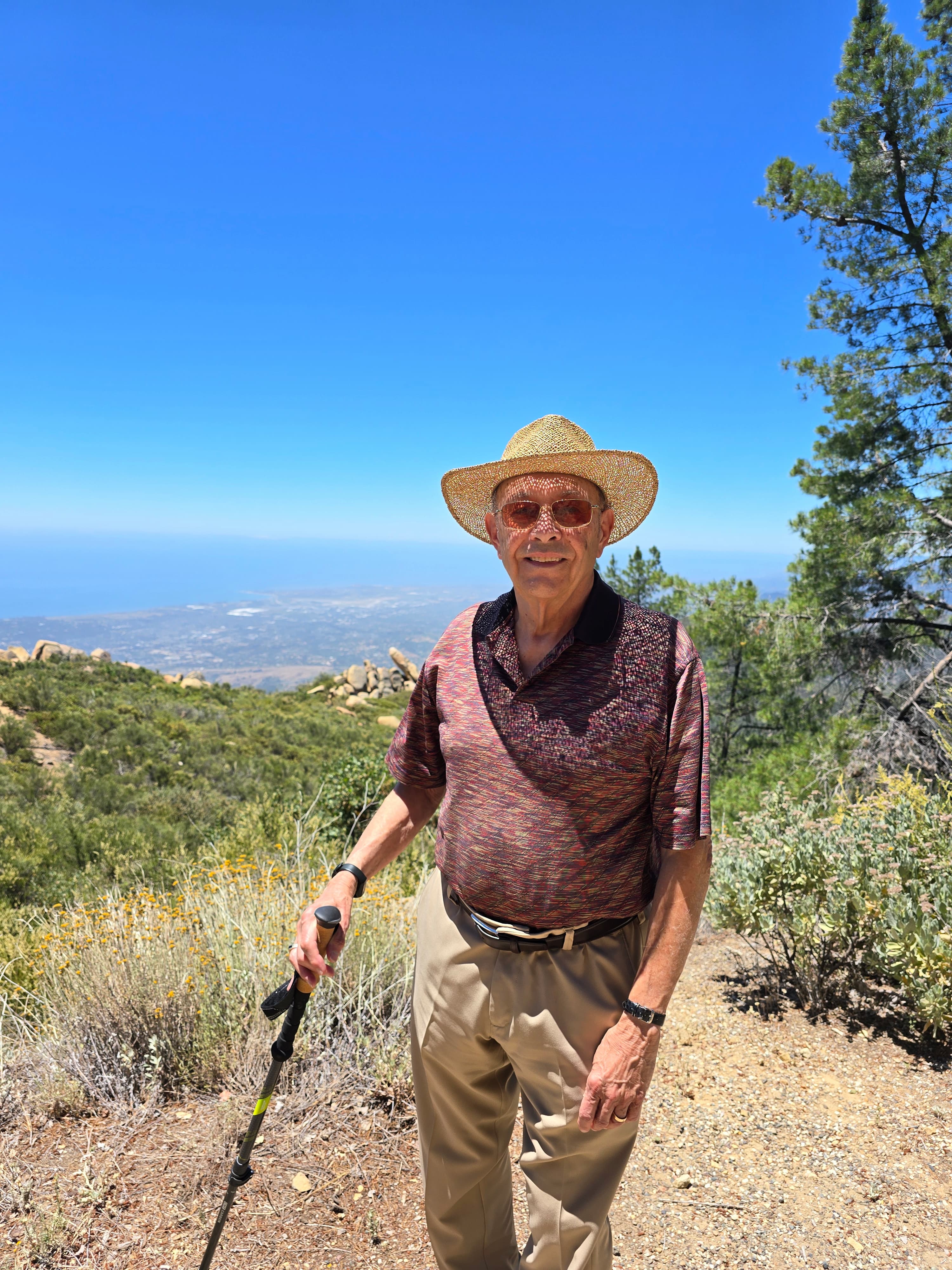
Learn some helpful tips from an expert on creating a safe and smooth journey with someone who has Alzheimer’s.
Have you ever considered traveling long distances with a loved one with Alzheimer’s and struggled with how to manage the travel details, the drive, and keep your loved one safe? Here, we will examine doing just this—driving long distances with someone with Alzheimer’s—and provide helpful suggestions from a travel nurse who works specifically with older adults.
Cindy Shaeffer, M.S., R.N., A.P.N., and flight nurse with Travel Care & Logistics, Inc. of Chicago, makes her living traveling with older individuals. Hired by families to assist them in getting an elder from one place to the next, sometimes by land or by air, she provided some suggestions for families to use for a smooth journey:
- Travel early in the morning
- Avoid situations with lots of people or lots of noise
- Traveling via car means there should be three people in the car: the driver, the person with Alzheimer’s, and the third person watching the other with Alzheimer’s—at all times
- Depending on the distance and cost of air travel in the area of travel, hiring a car service can be a better and less expensive option
Documentation and Medications
- Bring medical records in case you need to seek healthcare for your loved one with Alzheimer’s, including a summary of care, list of medications, and Power of Attorney for Health Care
- Bring your loved one’s valid state ID
- Bring two sets of medications—the primary set in a pill minder and a backup in original bottles because the bottles have the instructions
Some Things to Remember
- Keep your loved one’s physician informed of your travel plans—in case he needs to be contacted while you are traveling
- When traveling, remember to provide frequent small meals and small amounts of fluids
You’ve Arrived: Making the Setting Alzheimer’s Friendly
When arranging for overnight accommodations, Ms. Schaefer suggests considering a stay in a local assisted living facility under a respite stay. These facilities are prepared to care for someone with Alzheimer’s and provide a safe environment for residents with trained staff support.
Whether your loved one and the caregiver stay in a hotel or an assisted living facility, be sure to mimic your loved one’s home environment by setting up the queues just like home—i.e., the toothbrush, soap, washcloth, pills. These visual reminders can make it easier for your loved one to accomplish these tasks.
Structure Sleep Time for a Smooth Stay
On each of your days away, including travel days, allow your loved one to take an hour-long nap in the early afternoon, ensuring they wake up while the sun is up. Then, stay up for the rest of the afternoon, eat dinner, stay up, and go to bed. As confusion can worsen in the evening, this structure will allow your loved one to remain more oriented and sleep better.
Big Event? Plan Activities and Downtime
If there is a big event during your stay, such as a wedding or family reunion, you can do much to provide the structure and downtime your loved one needs to enjoy the event.
To help your loved one engage in the event, find something they can do to participate that matches their abilities. It might be folding napkins, organizing silverware, or stuffing envelopes.
Your loved one will need quiet time during such an event. When things become too overwhelming, allow them to retreat to their space with the caregiver. On the day after the event, plan for a quieter day—sleeping in, easing into the day, having a quiet activity with an older relative, or meeting up with small family groups.
The Road Home
Of course, when returning home, continue to follow all the guidelines of your trip to the event: leave early, avoid big crowds, have a driver and a caregiver in the car, hire a car service if needed, frequent small meals and fluids.
Above all, enjoy your time with your loved one.
About BrightFocus Foundation
BrightFocus Foundation is a premier global nonprofit funder of research to defeat Alzheimer’s, macular degeneration, and glaucoma. Since its inception more than 50 years ago, BrightFocus and its flagship research programs—Alzheimer’s Disease Research, Macular Degeneration Research, and National Glaucoma Research—has awarded more than $300 million in research grants to scientists around the world, catalyzing thousands of scientific breakthroughs, life-enhancing treatments, and diagnostic tools. We also share the latest research findings, expert information, and resources to empower the millions impacted by these devastating diseases. Learn more at brightfocus.org.
Disclaimer: The information provided here is a public service of BrightFocus Foundation and is not intended to constitute medical advice. Please consult your physician for personalized medical, dietary, and/or exercise advice. Any medications or supplements should only be taken under medical supervision. BrightFocus Foundation does not endorse any medical products or therapies.
- Lifestyle









